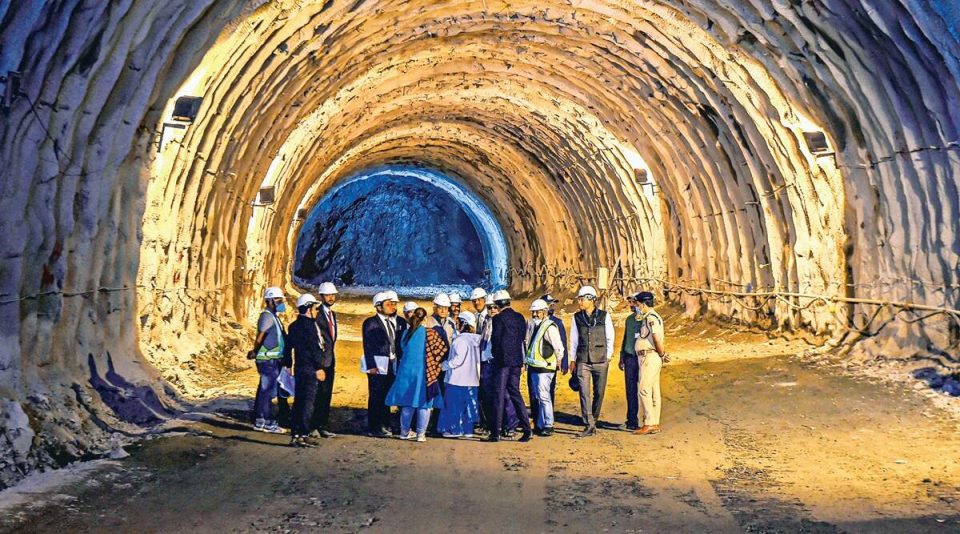
Explainer: Zojila tunnel and its importance for J&K, Ladakh

If all goes to plan, Asia’s longest bi-directional tunnel will be ready before Republic Day 2024.
On Tuesday, Union Minister for Road Transport and Highways Nitin Gadkari reviewed the construction work at the 14.5 km Zojila tunnel on the Srinagar-Leh highway, and expressed satisfaction at the speed of the project.
The tunnel, at a height of more than 11,500 feet, will provide all-weather, perennial connectivity between Kashmir and Ladakh.
Gadkari said the Zojila tunnel is of significance in development and tourism for both Union Territories of J&K and Ladakh, and will strengthen defence and economy in the region.
The Zojila tunnel will be India’s longest road tunnel, where work is divided into two divisions: development and expansion of the 18 km highway between Z-Morh on NH-1 to Zojila, in which a 3-km stretch will be expanded and the rest newly developed. The highway will have two twin-tube tunnels, five bridges, and two snow galleries. The second part is the 14.15-km Zojila tunnel – 9.5 m wide, 7.57 m high, with two lanes and in the shape of a horseshoe.
A 2,350-m concrete “cut and cover” tunnel will also be built, along with three ventilation caverns/shafts. Portals, control buildings, ventilation buildings and muck disposables along the route will also be constructed.
The 6.5 km Z-Morh between Gagangir and Sonmarg will provide connectivity in all-weather conditions between Srinagar and Kargil in Ladakh.
Currently, all commercial activity in the regions comes to a halt during winter as the Srinagar-Leh highway gets blocked with avalanches. With this project, Sonmarg at 8,960 feet in J&K will remain linked and supplies maintained all year.
Once the Zojila tunnel is completed, distance from Baltal to Minamarg will come down to 13 km from the present 40 km and travel time cut by an hour and a half. And in total, according to official estimates, travel time will be reduced from the current 3.5 hours through the pass to a 15-minute drive.
The Z-Morh project, being developed at a cost of Rs 2,300 crore, is designed for the flow of 1,000 vehicles an hour at an approved maximum speed of 80 km per hour. The tunnel will be partially opened for controlled traffic around the month of November.
The cost of building a total of 31 tunnel projects in Jammu and Kashmir and Ladakh will be around Rs 1.4 lakh crore, Gadkari has said, and that up to 4,000 local people have been given employment in the construction of the Zojila and Z-Morh tunnels.
The Zojila tunnel project is being executed by Megha Engineering and Infra, while the Z-Morh tunnel is under execution by engineering firm Apco.
With 18 km of approach roads on both sides, the Zojila tunnel will have three vertical shafts, fully lit, an automatic fire alarm and control system, as well as total CCTV coverage – all linked to a SCADA centre.
From the strategic point of view, the tunnel will be a critical asset for the armed forces.
Also read: Delimitation and what it means for the people of Jammu and Kashmir

